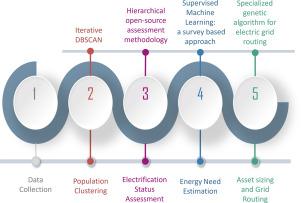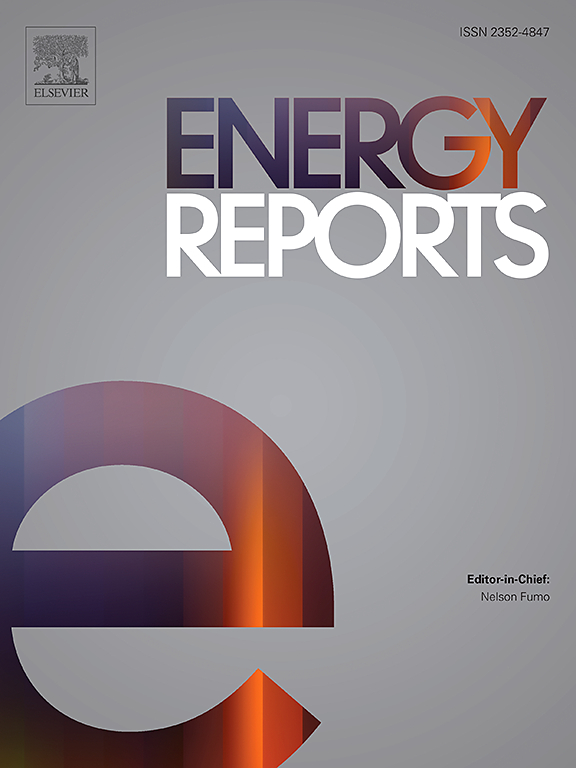Project TERESA: A GIS-based multifactorial framework utilizing supervised machine learning for nation-scale electrification planning
IF 5.1
3区 工程技术
Q2 ENERGY & FUELS
引用次数: 0
Abstract
This paper presents a large-scale electrification strategy developed within the project ”Technology for Rural Electrification in Sub-Saharan Africa” (TERESA). The approach proposed enhances the existing electrification framework GISEle by improving the population aggregation, introducing a novel survey-based methodology for energy demand estimation in spatially clustered communities, and incorporating a rule-based meta-heuristic algorithm to solve the optimization problem. Initially, iterative DBSCAN clusters population data. Electric grid and nighttime lighting open-source datasets then determine the electrification stage of communities. Subsequent steps involve load profile estimation: Multi-Tier Framework surveys gather household, educational, healthcare, and commercial activities data in selected communities. This represents a significant innovation in modeling cluster-level demand by systematically integrating survey insights into scalable energy planning. Considering the non-linearity between energy consumption, socioeconomic and resource consuming on-field campaigns, a supervised machine learning model extrapolates the energy demand of all the communities recognized by the clustering procedure. Lastly, a rule-based approach is utilized to determine each community’s means of electrification, and a genetic algorithm is employed for expanding the national grid. The approach was applied to the Zambezia region—the second most populous and least electrified province in Mozambique. In this context, the method enabled demand estimation for 1,292 communities, leveraging and transferring insights derived from 726 on-field surveys to support broader regional planning.

TERESA项目:一个基于gis的多因素框架,利用监督机器学习进行全国范围的电气化规划
本文介绍了在“撒哈拉以南非洲农村电气化技术”(TERESA)项目中制定的大规模电气化战略。该方法通过提高人口聚集性、引入基于调查的新型空间集群社区能源需求估算方法和基于规则的元启发式算法来解决优化问题,从而增强了现有电气化框架GISEle。最初,迭代DBSCAN对人口数据进行聚类。然后,电网和夜间照明开源数据集决定了社区的电气化阶段。后续步骤包括负荷概况估计:多层框架调查收集选定社区的家庭、教育、医疗保健和商业活动数据。通过系统地将调查见解整合到可扩展的能源规划中,这代表了对集群级需求建模的重大创新。考虑到能源消耗、社会经济和资源消耗之间的非线性,监督机器学习模型外推聚类过程识别的所有社区的能源需求。最后,采用基于规则的方法确定每个社区的电气化方式,并采用遗传算法扩展国家电网。该方法被应用于赞比西亚地区——莫桑比克人口第二多、电气化程度最低的省份。在这种情况下,该方法能够对1292个社区进行需求评估,利用和转移来自726个实地调查的见解,以支持更广泛的区域规划。
本文章由计算机程序翻译,如有差异,请以英文原文为准。
求助全文
约1分钟内获得全文
求助全文
来源期刊

Energy Reports
Energy-General Energy
CiteScore
8.20
自引率
13.50%
发文量
2608
审稿时长
38 days
期刊介绍:
Energy Reports is a new online multidisciplinary open access journal which focuses on publishing new research in the area of Energy with a rapid review and publication time. Energy Reports will be open to direct submissions and also to submissions from other Elsevier Energy journals, whose Editors have determined that Energy Reports would be a better fit.
 求助内容:
求助内容: 应助结果提醒方式:
应助结果提醒方式:


